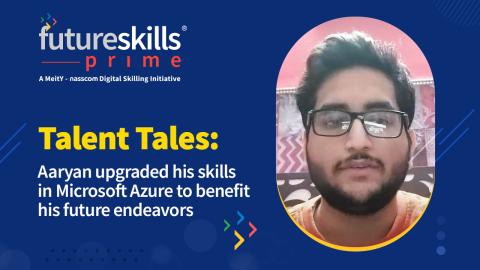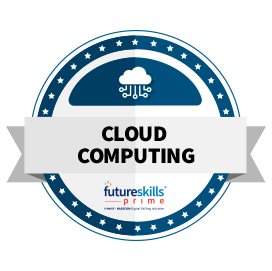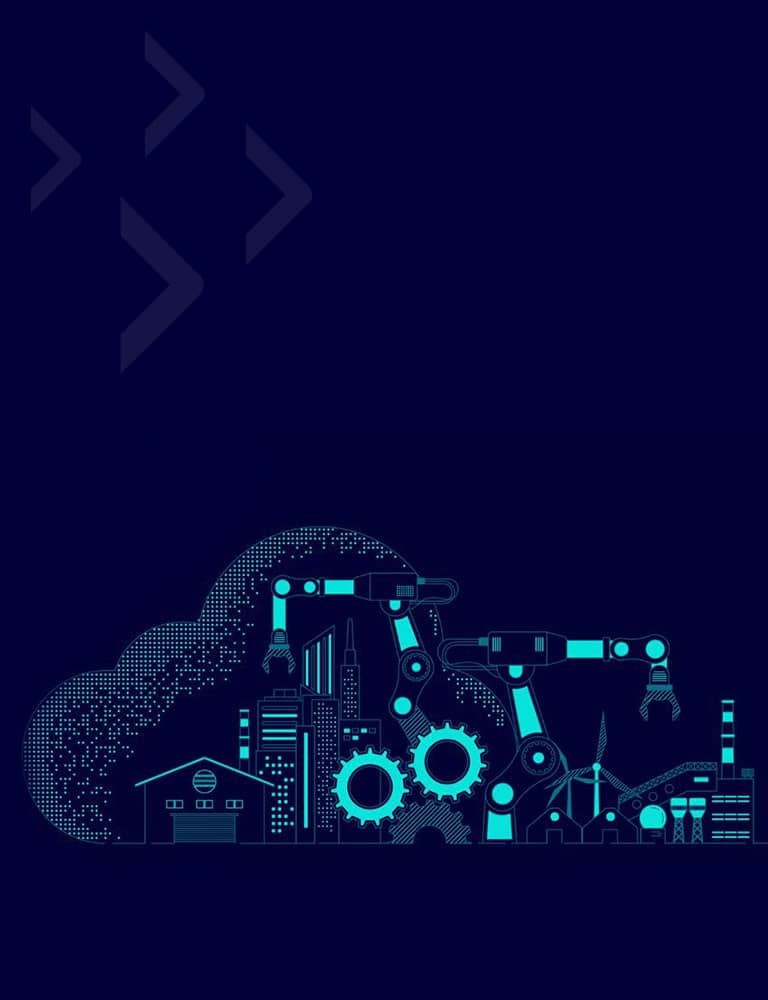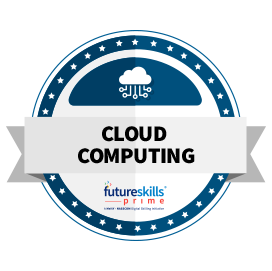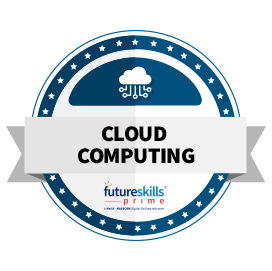I upgraded my skillset with the help of self learning modules for Azure Development on FutureSkills Prime.
Course Provider

What will you learn in this course?
- Develop Azure compute solutions
- Develop for Azure storage
- Implement Azure security
- Monitor, troubleshoot, and optimize Azure solutions
- Connect to and consume Azure services and third-party services
Azure Developer Associate (AZ-204)
-
 Skill Type
Emerging Tech
Skill Type
Emerging Tech -
 Domain
Cloud Computing
Domain
Cloud Computing -
 Course Category
Deepskilling Course
Course Category
Deepskilling Course -
 Certificate Earned Partner Completion Certificate
Certificate Earned Partner Completion Certificate -
 Course Covered under GoI Incentive
Yes
Course Covered under GoI Incentive
Yes -
-
 Course Price
Free
Course Price
Free -
 Course Duration
32 Hours 54 Minutes
Course Duration
32 Hours 54 Minutes
-
Why should you take this course?
- Azure Developer Associate pathway will help learners prepare for the Microsoft Certified: Azure Developer Associate (AZ-204) exam.
- Through this pathway, the learners will get skilled on concepts like server-side logic, server-less architecture, Azure storage management, virtual machines Web Apps and publishing websites.
Who should take this course?
- Students BE/BTech/MCS/MCA
- Software professionals
- IT professionals
Curriculum
The curriculum for this pathway includes:
- Create serverless applications
- Connect your services together
- Store Data in Azure
- Deploy a website with Azure virtual machines
- Manage resources in Azure
- Deploy a website to Azure with Azure App Service
- Secure your cloud data
Tools you will learn in this course
- Azure Virtual Machine
- Microsoft Azure
- Azure Functions Core Tools
- Visual Studio
- Azure Log Analytics
Course Provider

What will you learn in this course?
- This Virtual Lab offers access to Azure Subscription through Azure Portal which allows access to key Azure Services such as Virtual Machines, Storage Accounts, Virtual Machine Scale Sets, Virtual Networks and other services related to Azure Developer Associate certification.
- The resources launched within the Azure Portal will be deleted (cleaned-up) at the end of the session duration.
Azure Certification Azure Developer Associate
-
 Skill Type
Emerging Tech
Skill Type
Emerging Tech -
 Domain
Cloud Computing
Domain
Cloud Computing -
 Course Category
Virtual Labs
Course Category
Virtual Labs -
-
 Course Price
INR 250
Course Price
INR 250 -
 Course Duration
20 Hours
Course Duration
20 Hours
-
Why should you take this course?
It helps in pursuing Azure certification - Azure Developer Associate.
Who should take this course?
Anybody interested to understand Key Azure Services.
Curriculum
This Virtual Lab help learners to get hands-on experience in pursuing Azure Developer Associate Certification.
Course Provider

What will you learn in this course?
- This course teaches developers how to create end-to-end solutions in Microsoft Azure.
- Students will learn how to implement Azure compute solutions, create Azure Functions, implement, and manage web apps, develop solutions utilizing Azure storage, implement authentication and authorization, and secure their solutions by using KeyVault and Managed Identities.
- Students will also learn how to connect to and consume Azure services and third-party services and include event- and message-based models in their solutions.
- The course also covers monitoring, troubleshooting, and optimizing Azure solutions.
Developing Solutions for Microsoft Azure AZ-204
-
 Skill Type
Emerging Tech
Skill Type
Emerging Tech -
 Domain
Cloud Computing
Domain
Cloud Computing -
 Course Category
Deepskilling Course
Course Category
Deepskilling Course -
 Placement Assistance
Yes
Placement Assistance
Yes -
 Certificate Earned Joint Co-Branded Participation Certificate & Partner Completion certificate
Certificate Earned Joint Co-Branded Participation Certificate & Partner Completion certificate -
 Nasscom Assessment Coming Soon
Nasscom Assessment Coming Soon -
 Course Covered under GoI Incentive
Yes
Course Covered under GoI Incentive
Yes -
-
 Course Price
INR 30,000
Course Price
INR 30,000 -
 Course Duration
40 Hours
Course Duration
40 Hours
-
Why should you take this course?
- Microsoft Azure Developers are responsible for taking part in each phase of the cloud development process.
- They define solution requirements and design, develop, and maintain those same solutions.
- Azure Developers are also responsible for performance tuning and monitoring for the solutions they create.
Who should take this course?
- This course is for Azure Developers. They design and build cloud solutions such as applications and services.
- They participate in all phases of development, from solution design to development and deployment, to testing and maintenance.
- They partner with cloud solution architects, cloud DBAs, cloud administrators, and clients to implement the solution.
Curriculum
Module 01: Create Azure App Service web apps
In this module you will learn how Azure App Service functions and how to create and update an app. You will also explore App Service authentication and authorization, how to configure app settings, scale apps, and how to use deployment slots. This module includes:- Explore Azure App Service
- Configure web app settings
- Scale apps in Azure App Service
- Explore Azure App Service deployment slots
- Lab 01: Build a web application on Azure platform as a service offering
Module 02: Implement Azure Functions
In this module you will learn how to create and deploy Azure Functions. Explore hosting options, bindings, triggers, and how to use Durable Functions to define stateful workflows. This module includes:- Explore Azure Functions
- Develop Azure Functions
- Implement Durable Functions
- Lab 02: Implement task processing logic by using Azure Functions
Module 03: Develop solutions that use Blob storage
In this module you will learn how to create Azure Blob storage resources, manage data through the blob storage lifecycle, and work with containers and items by using the Azure Blob storage client library V12 for .NET. This module includes:- Explore Azure Blob storage
- Manage the Azure Blob storage lifecycle
- Work with Azure Blob storage
- Lab 03: Retrieve Azure Storage resources and metadata by using the Azure Storage SDK for .NET
Module 04: Develop solutions that use Azure Cosmos DB
In this module you will learn how to create Azure Cosmos DB resources with the appropriate consistency levels, choose and create a partition key, and perform data operations by using the .NET SDK V3 for Azure Cosmos DB. This module includes:- Explore Azure Cosmos DB
- Implement partitioning in Azure Cosmos DB
- Work with Azure Cosmos DB
- Lab 04: Construct a polyglot data solution
Module 05: Implement infrastructure as a service solutions
In this module you will learn how to create and deploy virtual machine, deploy resources using Azure Resource Manager templates, and manage and deploy containers. This module includes:- Provision virtual machine in Azure
- Create and deploy Azure Resource Manager templates
- Manage container images in Azure Container Registry
- Run container images in Azure Container Instances
- Lab 05: Deploy compute workloads by using images and containers
Module 06: Implement user authentication and authorization
In this module you will learn how to implement authentication and authorization to resources by using the Microsoft identity platform, Microsoft Authentication Library, shared access signatures, and use Microsoft Graph. This module includes:- Explore the Microsoft identity platform
- Implement authentication by using the Microsoft Authentication Library
- Implement shared access signatures
- Explore Microsoft Graph
- Lab 06: Authenticate by using OpenID Connect, MSAL, and .NET SDKs
Module 07: Implement secure cloud solutions
In this module you will learn how to more securely deploy apps in Azure by using Azure Key Vault, managed identities, and Azure App Configuration. This module includes:- Implement Azure Key Vault
- Implement managed identities
- Implement Azure App Configuration
- Lab 07: Access resource secrets more securely across services
Module 08: Implement API Management
In this module you will learn how the API Management service functions, how to transform and secure APIs, and how to create a backend API. This module includes:- Explore API Management
- Lab 08: Create a multi-tier solution by using Azure services
Module 09: Develop event-based solutions
In this module you will learn how to build applications with event-based architectures by integrating Azure Event Grid and Azure Event Hubs in to your solution. This module includes:- Explore Azure Event Grid
- Explore Azure Event Hubs
- Lab 09: Publish and subscribe to Event Grid events
Module 10: Develop message-based solutions
In this module you will learn how to build applications with message-based architectures by integrating Azure Service Bus and Azure Queue Storage in to your solution. This module includes:- Discover Azure message queues
- Lab 10: Asynchronously process messages by using Azure Service Bus Queues
Module 11: Instrument solutions to support monitoring and logging
In this module you will learn how to instrument apps to enable Application Insights to monitor performance and help troubleshoot issues. This module includes:- Monitor app performance
- Lab 11: Monitor services that are deployed to Azure
Module 12: Integrate caching and content delivery within solutions
In this module you will learn how to improve the performance and scalability of your applications by integrating Azure Cache for Redis and Azure Content Delivery Network into your solution. This module includes:- Develop for Azure Cache for Redis
- Develop for storage on CDNs
- Lab 12: Enhance a web application by using the Azure Content Delivery Network
Tools you will learn in the course
How to implement Azure compute solutions, create Azure Functions, implement and manage web apps, develop solutions utilizing Azure storage, implement authentication and authorization, and secure their solutions by using KeyVault and Managed Identities.FAQs
All our highly qualified trainers are AWS certified, with more than 15 years of experience in training and working in their domain. Each of them has gone through a rigorous selection process, which includes profile screening, technical evaluation, and a training demo before they qualify as The DataTech Labs trainers. We also ensure that only those trainers who maintain a high alumni rating continue to train for us.
The AWS Certification exam is a combination of multiple-choice and multiple-answer questions.
Virtual instructor-led training (VILT) refers to training that is delivered in a virtual or simulated environment, or when the instructor and learner are in separate locations. Virtual instruction environments are designed to simulate the traditional classroom or learning experience. They are interactive sessions that enable you to ask questions and participate in discussions during class time.
We offer 24/7 support through email, chat, and calls. We also have a dedicated team that provides on-demand assistance through our community forum (KAAS). What’s more, you will have lifetime access to the community forum, even after completion of your course with us.
Yes, you can cancel your enrolment if necessary. As with any online purchase experience, there are terms and conditions that govern the Refund Policy. When you buy a training course on The DataTech Labs, you agree to our Privacy Policy, Terms of Use, and refund policy.
